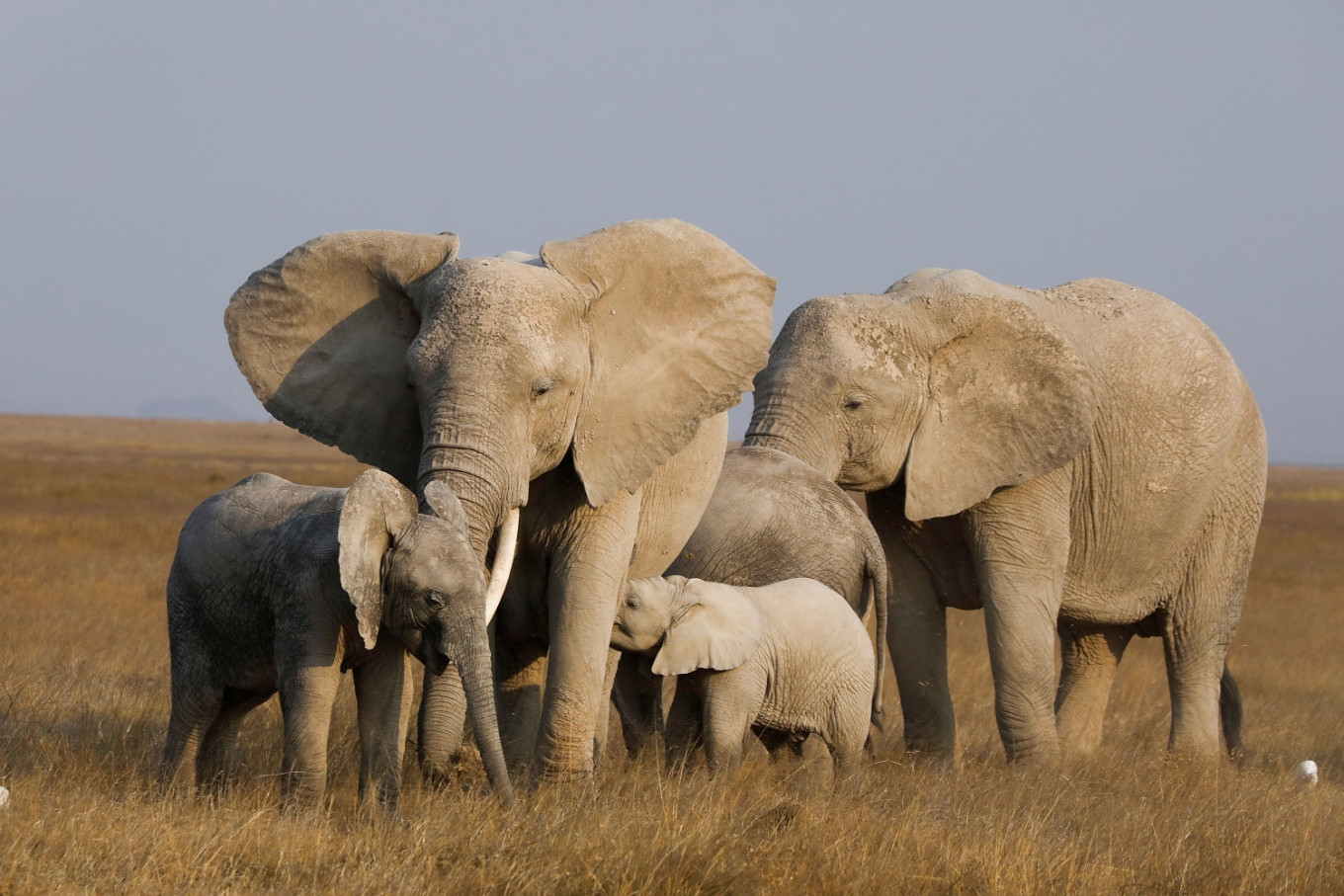Popular Reads
Top Results
Can't find what you're looking for?
View all search resultsPopular Reads
Top Results
Can't find what you're looking for?
View all search resultsKenya elephant numbers more than double in 1980-2018: Tourism minister
Kenya's elephant numbers more than doubled between 1989 and 2018, thanks to increased anti-poaching efforts.
Change text size
Gift Premium Articles
to Anyone
K
enya's elephant numbers more than doubled between 1989 and 2018, thanks to increased anti-poaching efforts, the tourism minister said on Wednesday.
Kenya had just 16,000 elephants in 1989, and this rose to more than 34,000 in 2018, Minister Najib Balala said.
"In the last couple of years, we have managed to tame poaching in this country," he told reporters during a visit to the Amboseli National Park.
The number of elephants poached so far this year stood at seven, down from 34 in all of 2019, and 80 in 2018.
While at the park, Balala participated in attaching a tracking collar to a bull elephant and naming of a pair of twin calves, as part of a naming campaign for elephants to be done next August.
Read also: Sri Lanka rangers spot possible rare baby elephant twins
Poaching had surged in past years in Kenya and other sub-Saharan African countries, where gangs killed elephants and rhinos to feed Asian demand for ivory and horns for use in folk medicines.
In 2016, President Uhuru Kenyatta set fire to thousands of elephant tusks and rhino horns, destroying a stockpile that would have been worth a fortune to smugglers and sending a message that trade in the animal parts must be stopped.
The government has put in place stiffer penalties - longer jail terms and bigger fines - on anyone convicted of poaching or trafficking in wildlife trophies, saying poaching was harming tourism, a major foreign exchange earner.
Balala said due to the COVID-19 pandemic, the number of foreign tourists visiting Kenya was expected to drop by 80 percent to 90 percent in 2020 and 2021.











